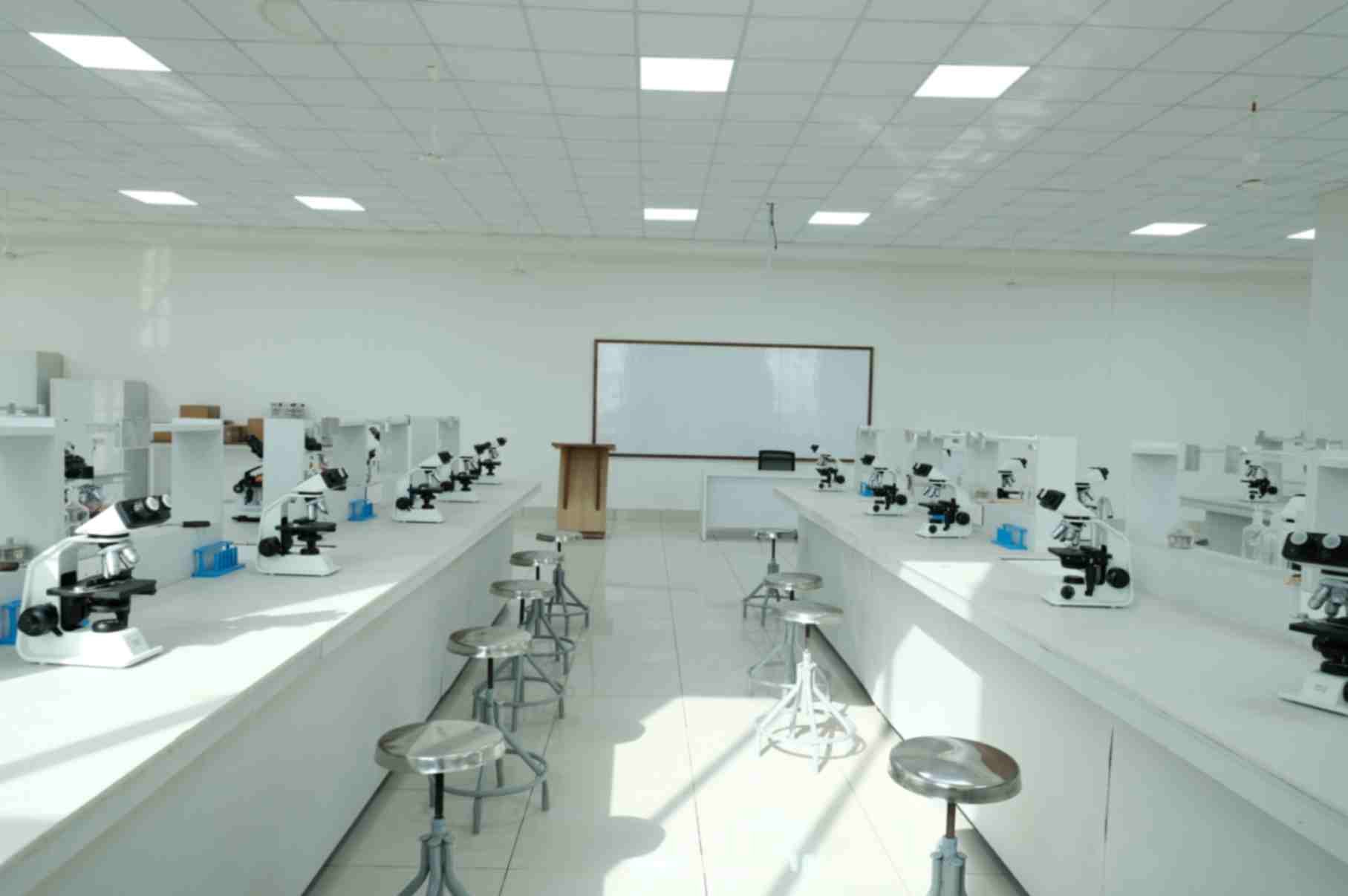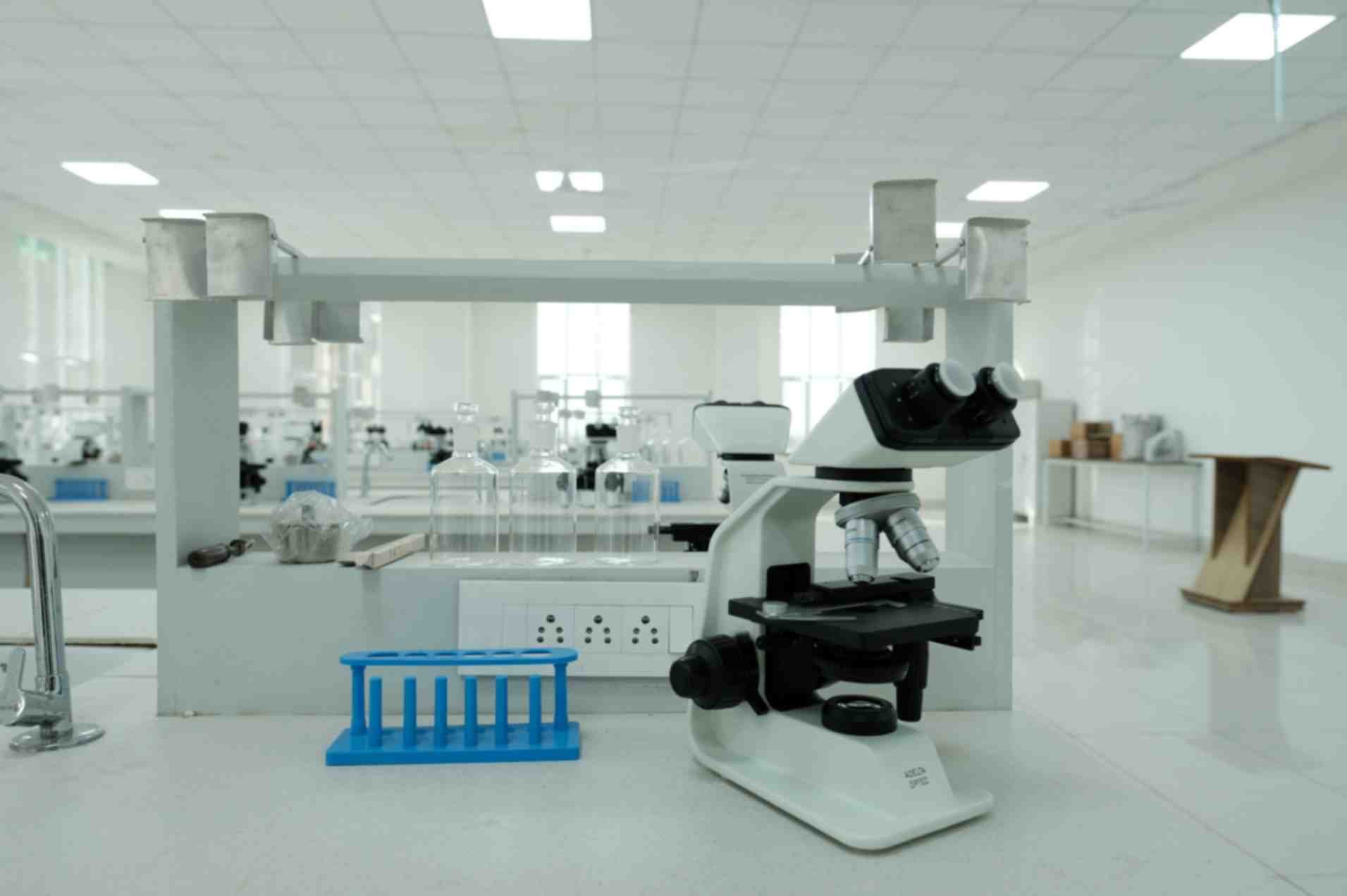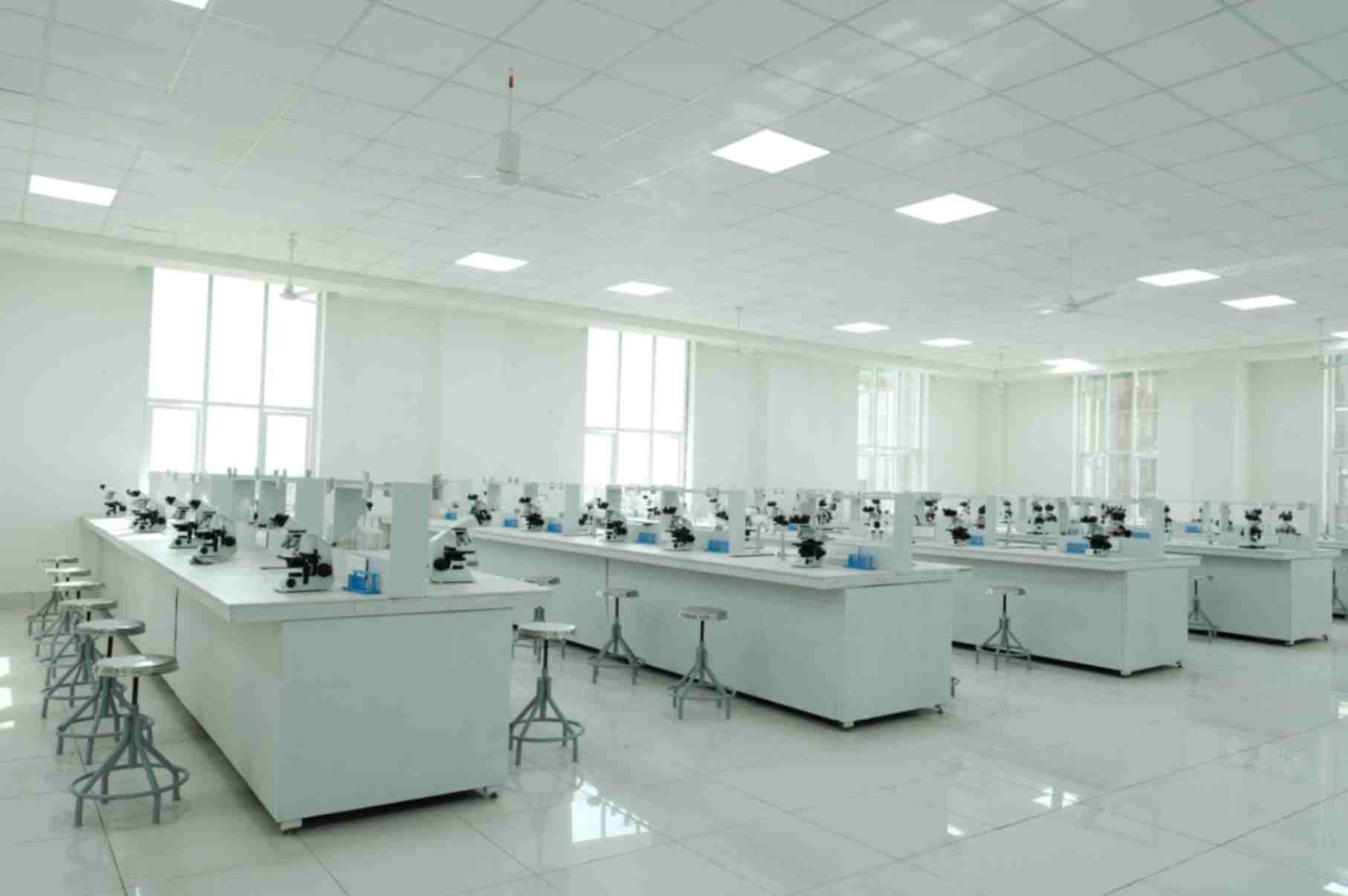
Department of Microbiology
Department of Microbiology



About
Microbiology explores the world of microscopic organisms that evade naked-eye detection due to their minuscule size. Encompassing bacteria, archaea, viruses, fungi, prions, protozoa, and algae, these entities, broadly termed 'microbes,' become the subjects of extensive study in this scientific discipline.
About Microbiology department
The Microbiology department is an essential branch within the biological sciences that focuses on studying, researching, and applying microscopic organisms, including bacteria, viruses, fungi, and algae. This specialized field addresses critical questions about the fundamental processes of life and explores how tiny entities impact our world on a macro scale. Researchers and scientists within the department delve into myriad facets, such as understanding microbial physiology, genetics, pathogenicity, and ecology. A robust Microbiology department contributes significantly to various arenas, including healthcare, agriculture, and industry, by developing antibiotics vaccines and ensuring food safety. Moreover, microbiologists explore innovative solutions to global challenges, such as developing sustainable biofuels and addressing antimicrobial resistance. In a clinical context, the Microbiology department of JIET Hospital plays a pivotal role in diagnosing infectious diseases and crafting disease management and prevention strategies. Education and training in this department encompass instilling thorough knowledge and fostering research skills among students and researchers to continue unraveling microscopic mysteries. The expertise developed here is vital to propelling advancements in biotechnology, medicine, and environmental science, fostering a future where microorganisms can be more thoroughly understood and utilized for societal benefit.
Objectives:
Excellence in Diagnostics and Patient Care:
Aim to provide accurate, rapid, and reliable microbiological diagnostics to facilitate timely and effective patient care.
Implement quality assurance measures to ensure the precision and accuracy of diagnostic results.
Innovative Research and Development:
Engage in groundbreaking research endeavors to explore new dimensions in microbial sciences, contributing to developing novel diagnostic and therapeutic tools.
Foster collaborations with national and international research institutes to promote knowledge exchange and collaborative research activities.
Patient Safety and Infection Control:
Develop and enforce strict infection control protocols to safeguard patients, staff, and visitors from healthcare-associated infections.
Enhance our antimicrobial stewardship program to optimize the use of antimicrobial agents, preventing the emergence and spread of resistant strains.
Education and Training:
Commit to our staff's continuous education and training to ensure they remain adept with the latest technologies and methodologies in microbiology.
Establish an educational framework to facilitate medical and paramedical student training, ensuring future professionals are well-versed in modern microbiological practices.
Community Engagement and Public Health Initiatives:
Engage with the community to promote awareness regarding infectious diseases, prevention strategies, and the importance of microbiology in public health.
Collaborate with public health agencies and organizations to support and implement strategies to prevent and control infectious diseases within the community.
Microbiology Doctors in jodhpur
| Doctor's Name | Qualification | Designation |
|---|---|---|
| Dr. Meenakshi S. Morey | M.B.B.S., MD | Professor |
| Dr. Mohan BS | M.B.B.S., MD | Associate Professor |
| Dr. Vandana Shankar | M.B.B.S., MD | Associate Professor |
| Dr. Sonu Kumari Agrawal | M.B.B.S., MD | Assistant Professor |
| Dr. Rahhina Basir | Assistant Professor | |
| Dr. Anupam Kumar Anveshi | M.B.B.S., MD | Assistant Professor |
| Dr. Neeru Kapoor | M.B.B.S., MD | Assistant Professor |
| Dr. Laxmi Meena | M.B.B.S., MD | Senior Resident |
| Dr. Frincy Khandelwal Baruah | Senior Resident | |
| Dr. Chaitali Sharma | M.B.B.S., MD | Senior Resident |
| Dr. Pradeep Jagdishchandra Nawal | M.B.B.S., MD | Senior Resident |
| Dr. Megha Sharma | MS | Demonstrator |
| Dr. Abhila Parashar | MSC, PHD | Demonstrator |
| Dr. Bhanwar lal | M.B.B.S. | Tutor |
| Dr. Akshay Vyas | M.B.B.S. | Tutor |
| Dr. Dorjee Lobsang | M.B.B.S. | Tutor |
| Dr. Rahul Ujjainia | M.B.B.S. | Tutor |
FAQ’s
-
The Microbiology Department primarily focuses on studying microscopic organisms like bacteria, fungi, viruses, and parasites to understand their function & role in diseases, ensuring accurate disease diagnosis, and developing effective treatment and prevention strategies.
-
The department performs various tests like bacterial culture, antimicrobial susceptibility testing, virus isolation, fungal identification, and parasite identification, among others, to diagnose infections and guide treatment.
-
Our department adheres to stringent quality control procedures and utilizes advanced technologies to ensure accuracy and reliability in test results. Our personnel are highly trained and dedicated to maintaining the highest laboratory practice standards.
-
The department works closely with the Infection Control Team to monitor, prevent, and control hospital-associated infections. This involves providing data on pathogenic microbes, advising on isolation protocols, and assisting in outbreak investigations.



